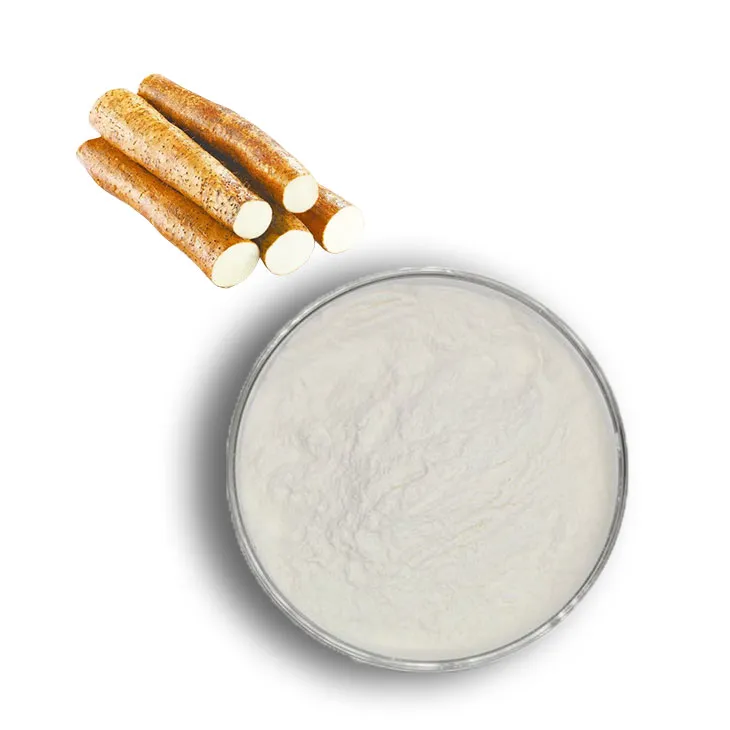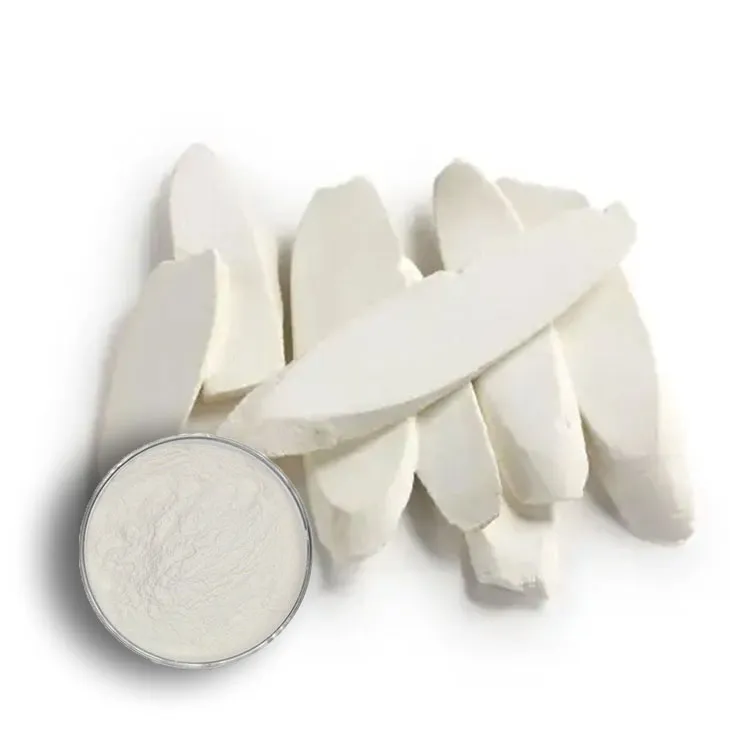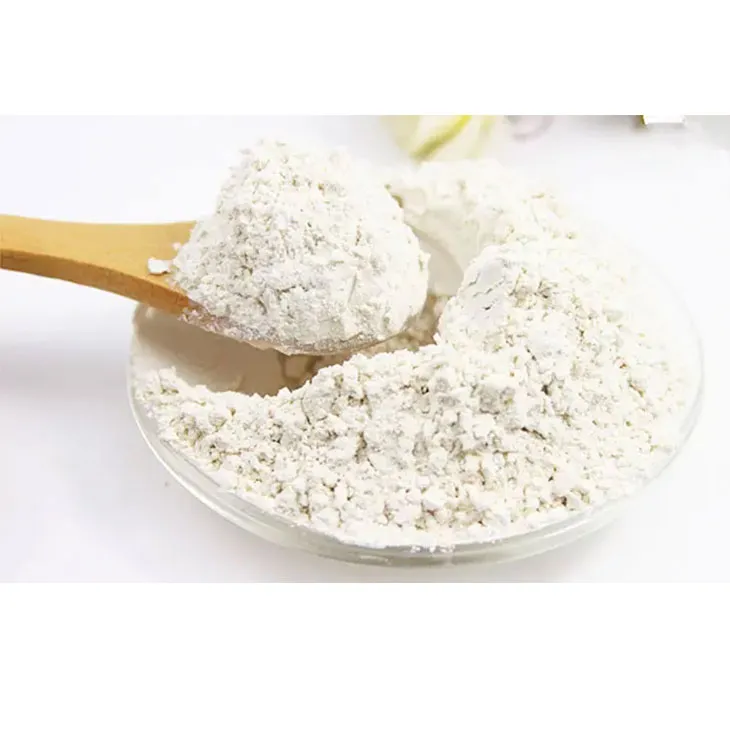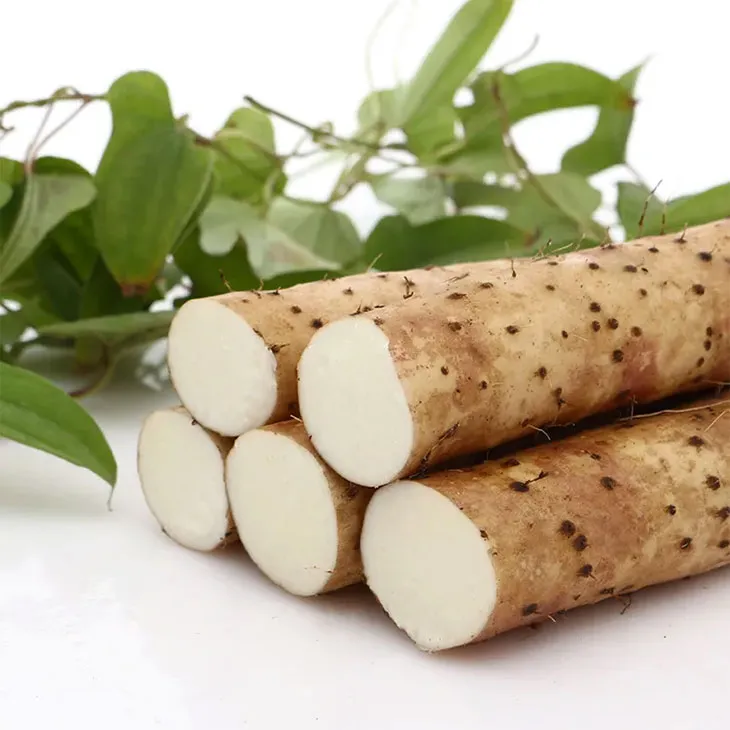- 0086-571-85302990
- sales@greenskybio.com
Use yam extract? Make sure you source from sustainable suppliers!
2024-12-12

1. Introduction to Yam Extract
Yam Extract has emerged as a highly valuable ingredient in recent years, finding its place in multiple industries. Yams, botanically known as Dioscorea, are tuberous root vegetables that are native to various parts of the world. The extract derived from yams is rich in a plethora of nutrients, making it a sought - after component in different applications.

2. Nutritional and Beneficial Properties of Yam Extract
2.1. Health Benefits
Yam extract is a powerhouse of nutrients. It contains significant amounts of vitamins such as vitamin C, which is essential for a healthy immune system. Additionally, it has dietary fiber, which aids in digestion and helps in maintaining a healthy gut microbiome. Some studies also suggest that yam extract may have anti - inflammatory properties, potentially helping in reducing the risk of chronic diseases like arthritis.2.2. Beauty Applications
In the beauty industry, yam extract has been making waves. It is rich in antioxidants, which are crucial for combating free radicals that can cause premature aging of the skin. These antioxidants help in maintaining the skin's elasticity and reducing the appearance of wrinkles. Moreover, yam extract can also be used in hair care products as it may nourish the hair follicles, promoting healthy hair growth.2.3. Culinary Uses
In the food industry, yam extract can be used to enhance the flavor of various dishes. It can add a unique earthy and sweet flavor to soups, stews, and even baked goods. Yams are also a good source of complex carbohydrates, and the extract can be used as a natural thickening agent in some recipes.
3. The Problem of Unsustainable Sourcing
3.1. Environmental Impact
Unsustainable sourcing of yam extract can have a significant negative impact on the environment. Over - harvesting of yams without proper management can lead to soil erosion. Yams are often grown in specific soil conditions, and excessive removal of the tubers can disrupt the soil structure. This, in turn, can reduce the soil's fertility and its ability to support other plant life. Moreover, if the yam - growing areas are cleared without proper reforestation or conservation measures, it can lead to habitat loss for many native species.3.2. Potential Shortages
Another consequence of unsustainable sourcing is the potential for shortages. If yams are harvested at a rate faster than they can be replanted and grown, the supply of yams for extraction will eventually dwindle. This not only affects the businesses that rely on yam extract but also the local communities that depend on yam cultivation for their livelihoods. In some regions, yams are a staple food, and a shortage can lead to food security issues.
4. The Importance of Sourcing from Sustainable Suppliers
4.1. Environmental Conservation
Sustainable suppliers play a crucial role in environmental conservation. They are likely to employ farming practices that protect the soil. For example, they may use crop rotation techniques that include yams in a cycle with other plants. This helps in maintaining soil fertility and preventing erosion. Sustainable suppliers may also be more inclined to use natural fertilizers and pest control methods, reducing the use of harmful chemicals that can contaminate the soil and water sources.4.2. Long - Term Availability
By sourcing from sustainable suppliers, businesses can ensure the long - term availability of yam extract. Sustainable suppliers are focused on maintaining a balance between harvesting and replanting. They are likely to have proper cultivation plans that ensure a continuous supply of yams. This is beneficial for industries that rely on yam extract as an ingredient, as it provides stability in their supply chain.4.3. Social and Ethical Considerations
Sourcing from sustainable suppliers also has social and ethical implications. In many cases, sustainable suppliers work closely with local communities. They may provide fair wages to farmers and workers involved in yam cultivation and extraction. This helps in improving the economic well - being of the local population. Additionally, sustainable suppliers are more likely to follow ethical labor practices, ensuring a safe and healthy working environment.
5. How to Identify Sustainable Suppliers
5.1. Certification and Standards
One of the first things to look for when identifying a sustainable supplier is relevant certifications and standards. For example, there are organic certifications that ensure that the yams are grown without the use of synthetic pesticides and fertilizers. There may also be certifications related to sustainable farming practices, such as fair trade certifications. These certifications indicate that the supplier meets certain environmental, social, and ethical criteria.- Look for certifications like USDA Organic in the United States or EU Organic in Europe.
- Fair trade certifications can show that the supplier is committed to fair labor practices and community development.
5.2. Transparency in the Supply Chain
A sustainable supplier should be transparent about its supply chain. This means that they should be able to provide information about where the yams are sourced from, how they are grown, and the processes involved in extraction. Transparency allows businesses and consumers to have confidence that the yam extract is being sourced in an ethical and sustainable manner.- Ask for detailed information about the origin of the yams, including the region and the specific farms.
- Request information about the cultivation methods, such as whether they use natural pest control or irrigation techniques.
5.3. Supplier's Reputation
The reputation of the supplier is also an important factor. Research the supplier's history and any reviews or feedback from other customers. A supplier with a good reputation is more likely to be reliable and sustainable.- Look for online reviews and testimonials from other businesses that have sourced yam extract from the supplier.
- Check if the supplier has been involved in any environmental or social initiatives.
6. Conclusion
Yam extract offers a wide range of benefits in the health, beauty, and food industries. However, to ensure its long - term availability and to minimize the negative impact on the environment and local communities, it is essential to source it from sustainable suppliers. By carefully identifying sustainable suppliers through factors such as certifications, transparency, and reputation, businesses can contribute to a more ethical and sustainable use of yam extract. This not only benefits the industries that rely on this valuable ingredient but also the planet and the people involved in its production.
FAQ:
What are the benefits of yam extract?
Yam extract is rich in nutrients. It has various applications in health, beauty, and food industries. For example, in the health industry, it may contribute to certain aspects of well - being. In the beauty industry, it can be used in products for skin or hair benefits. In the food industry, it may add nutritional value to food products.
Why is it important to source yam extract from sustainable suppliers?
Unsustainable sourcing can lead to environmental degradation. This may include over - harvesting which can damage yam - growing ecosystems. It can also lead to potential shortages in the long run, affecting the availability of yam extract for various industries. By sourcing from sustainable suppliers, we can ensure the long - term availability of yam extract while also being environmentally responsible.
How can one identify a sustainable supplier of yam extract?
One can look for suppliers who have certifications related to sustainable practices. For example, certifications that ensure ethical farming methods, such as fair treatment of workers and proper land management. Also, check if the supplier has a track record of responsible sourcing, perhaps by looking at their history of working with local communities and their environmental initiatives. Another aspect is to see if they follow regulations regarding sustainable harvesting limits.
What are the potential consequences of using yam extract sourced from non - sustainable suppliers?
The potential consequences include contributing to environmental problems like deforestation if yams are being over - harvested from forested areas. There could also be a negative impact on local communities who rely on yam cultivation in a sustainable way. In the long - term, industries relying on yam extract may face shortages, which can lead to increased costs and disruption of product lines.
Are there any regulations regarding the sourcing of yam extract?
There may be some local and international regulations regarding sustainable farming and harvesting practices that are relevant to yam extract sourcing. These can include regulations on land use, pesticide use, and fair trade practices. However, the enforcement and comprehensiveness of these regulations can vary from region to region.
Related literature
- Sustainable Sourcing in the Botanical Extract Industry"
- "The Importance of Sustainable Yam Cultivation for Extract Production"
- "Ethical Sourcing of Nutrient - Rich Extracts: The Case of Yam"
- ▶ Hesperidin
- ▶ citrus bioflavonoids
- ▶ plant extract
- ▶ lycopene
- ▶ Diosmin
- ▶ Grape seed extract
- ▶ Sea buckthorn Juice Powder
- ▶ Beetroot powder
- ▶ Hops Extract
- ▶ Artichoke Extract
- ▶ Reishi mushroom extract
- ▶ Astaxanthin
- ▶ Green Tea Extract
- ▶ Curcumin Extract
- ▶ Horse Chestnut Extract
- ▶ Other Problems
- ▶ Boswellia Serrata Extract
- ▶ Resveratrol Extract
- ▶ Marigold Extract
- ▶ Grape Leaf Extract
- ▶ blog3
- ▶ blog4
- ▶ blog5
-
Pure 85% Tomentil Extract.
2024-12-12
-
Shikonin
2024-12-12
-
Curcuma Longa Extract
2024-12-12
-
White mustard seed extract
2024-12-12
-
Licorice Root Extract Powder
2024-12-12
-
Coix Seed Extract
2024-12-12
-
Camu Camu Extract
2024-12-12
-
Aguaje Extract
2024-12-12
-
Black Pepper Extract
2024-12-12
-
Bayberry Extract
2024-12-12
-
Carrageenan Extract Powder
2024-12-12





















